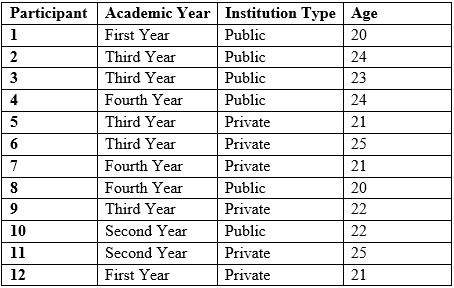BEYOND TABOOS AND TEXTBOOKS: A PILOT STUDY ON BSN STUDENTS’ PERCEPTIONS ABOUT GAMIFICATION IN SRHR LEARNING
DOI:
https://doi.org/10.71146/kjmr581Keywords:
Gamification in SRHR, Nursing Education, Cultural Sensitivity, Undergraduate Nursing StudentsAbstract
Background
In Pakistan, prevailing socio-cultural norms surrounding sexuality and reproduction contribute to significant gaps in nursing students’ knowledge of Sexual and Reproductive Health and Rights (SRHR). Due to limited exposure through formal education, many students lack the confidence and competence to engage in SRHR-related discussions or provide comprehensive care in clinical settings. Traditional didactic teaching methods often fail to foster critical engagement with sensitive topics, reinforcing discomfort and silence. Integrating gamification into nursing education offers a pedagogically innovative solution, promoting active, stigma-free learning environments that enhance students’ communication skills, knowledge retention, and readiness to address SRHR issues in practice.
Objectives
To explore perceptions of undergraduate nursing students about gamification strategy in teaching Sexual and Reproductive Health and Rights (SRHR).
Methodology
This qualitative descriptive study explored perceptions of undergraduate nursing students about gamification strategy while teaching sensitive topics like SRHR. A total of 12 students from two nursing colleges, 6 students from public and 6 students from private college in Lahore were selected through purposive sampling to ensure diverse representation across first to four academic years. A semi structured interview guide was developed to explore perceptions of BSN students about gamification use as teaching strategy in SRHR learning. The questions focused on perceptions about game-based strategy, students’ engagement while using scenario-based games, their comfort level in discussing taboo topics, motivation, knowledge retention and their preparedness for clinical practice after practicing real word scenario-based case studies on all SRHR components. Ethical approval was taken before conducting a study in both institutes. Participants recruited according to inclusion criteria that students who are enrolled in a BSN program and had completed at least one SRHR module. The data collection tool was validated through expert review and pilot testing for clarity and cultural appropriateness, then use for data collection by ensuring confidentiality and informed consent, and analyzed through manual coding to generate themes.
Results
Students perceived gamification as a highly effective approach that probably increased their engagement by providing interactive and emotionally safe learning environments. Many expressed those gamified activities helped reduce discomfort and anxiety when discussing sensitive and often taboo topics such as contraception, consent, dilemmas, sexual & reproductive rights and gender identity. Participants highlighted that scenario-base and case study games enabled them to practice clinical decision-making and communication skills in realistic, consequence-free settings, which boosted their confidence. Despite these positive perceptions, students also perceived some challenges that may be occur, including technical glitches, insufficient faculty training on gamification tools, and a need for content that better reflects cultural diversity and context. They emphasized that gamified learning should be closely integrated with real clinical experiences to enhance their preparedness for delivering quality patient care.
Conclusion
This study shows that nursing students view gamification as a powerful alternative to traditional SRHR education. It enhances engagement, motivation, retention, and decision-making while easing discussions on sensitive topics. Gamification fosters safe, ethical reflection on complex issues like consent and reproductive rights. Students see it as an evidence-based, not novel, strategy. They recommend culturally grounded, context-specific content for future implementation into Nursing education.
Downloads

Downloads
Published
License
Copyright (c) 2025 Ghulam Fatima, Dr. Tazeen Saeed Ali, Dr. Naghma Rizvi (Author)

This work is licensed under a Creative Commons Attribution 4.0 International License.






